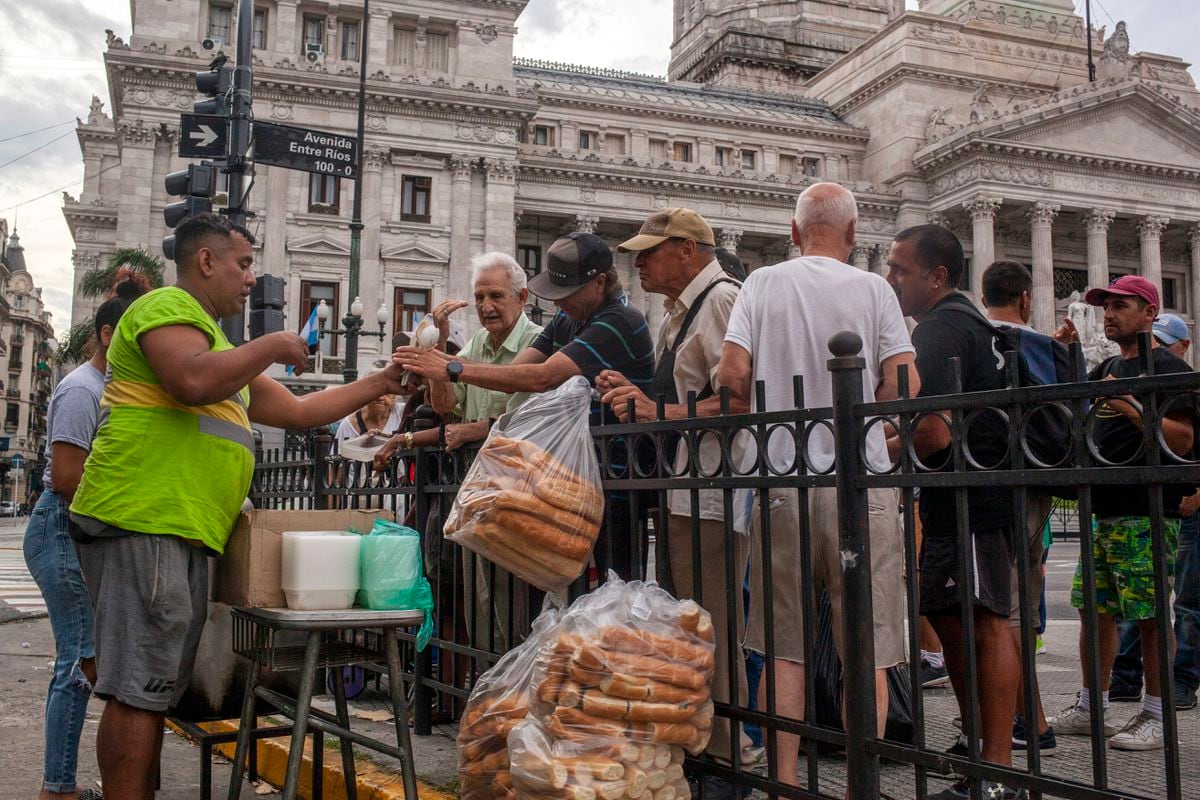Progress, that utopia that our elders had and that we have forgotten.
Progress, that advance towards a hopeful future that seems canceled in much of Latin America.
We like to say that we are developing countries, but most
of us are not on the way to anything
.
Growing poverty, inequality and injustice are eating away at the foundations of our democracies.
Who stands out in Latin America is Uruguay
, the "little country" as the Orientals affectionately call it.
Or “the younger brother we have to take care of”, as our Economy Minister said with a boorish spirit at the CELAC summit, showing not only ignorance but also a lack of education.
Uruguay is one of the
13 fullest democracies on the planet
, along with the Scandinavian countries, Iceland, New Zealand, Ireland, Taiwan, Australia, Switzerland, the Netherlands and Canada.
It ranks above Great Britain, France, the United States and Argentina (55th place), which are among the failed democracies.
According to this assessment, these are democracies that currently do not meet the required standards in terms of electoral process and pluralism, civic liberties, government functioning, political participation, or political culture.
A chilling fact:
55% of the world population lives under authoritarian or hybrid regimes
, where justice, freedom and life itself are at the mercy of their rulers.
As in Cuba, Venezuela, Nicaragua, Iran, Russia and China,
some of the ideological beacons of Kirchnerism
.
While hopelessness and social polarization shake most of the democracies in South America,
Uruguayans trust the Justice, the Executive Power, Congress and the political parties
, according to the meticulous survey carried out annually by the Latinobarómetro study center.
“In most of the indicators, Uruguay is twenty or thirty points above the rest of the countries.
It is like the pretty girl of the region”, pointed out the Chilean expert Marta Lagos, director of Latinobarómetro.
Since the return to democracy in 1985, both left and right governments in Uruguay have made public trust a sort of national identity.
Continuity and prudence in the management of public affairs has yielded good results.
As in the fable of the hare and the tortoise, the "little country" that seemed slower and less daring left behind those who believed themselves to be the largest in the world or the most alive on the planet.
Uruguay boasts the highest GDP per capita in Latin America.
Twice Argentina (if measured at the real exchange rate and not fictitious of the Central Bank), Mexico and Brazil.
It is important to point out that in Uruguay, social justice is not just an empty promise but a reality, which obviously can always be improved.
It has the lowest poverty rate (10% of the population) and the best income distribution, with a Gini coefficient (the difference between those who earn the most and those who earn the least) close to that of France.
A decade ago, economists Daron Acemoglu and James Robinson made a splash with their celebrated book Why Nations Fail?
Through hundreds of examples from different historical periods, countries and regions of the world, they demonstrated that rich nations differ from poor ones due to the quality of democratic institutions: “…the key lies in the processes of institutional development that produce political institutions and Economics that can be inclusive —focused on the distribution of power, productivity, education, technological advances, and the well-being of the population— or extractive —willing to seize wealth and resources from one part of society to benefit another —”.
Our neighbors know that public money is sacred, since stealing from the State means stealing from those most in need.
They have the lowest corruption rate in Latin America and one of the lowest in the world.
Unfortunately, we cannot say the same about our beloved country, where the looting of the State by presidents, presidents, civil servants, political parties, businessmen, trade unionists and hundreds of thousands of "gnocchi" (as we call public employees who receive a salary without paying a function) has multiplied poverty tenfold in the last half century.
From being a middle-class society, with a poverty rate of 4.5% in 1970,
today we are a fragmented, impoverished society, with a suffocated middle class and 45% of the population living below the poverty line
.
The worst thing is that 7 out of 10 children, who are the future of Argentina, are born, grow up and will surely live in poverty.
What future awaits us?
Since the arrival of the fourth Kirchner government at the Casa Rosada, 30,000 Argentines, an emblematic figure in our country, have settled in Uruguay and the same number (it could be a similar number) in Spain, Europe and the United States.
A survey by the consulting firm Taquión in March 2022 revealed that “65% of Argentines and 85% of those under 25 years of age say that if they could they would go to live in another country.
Uncertainty and the lack of future perspectives are the main reasons”.
Surely Sergio Massa knows this dramatic reality.
That is why his imposted paternalism sounded like what it was, a brat.
The one who understood this was President
Lula da Silva
himself .
The next day he traveled to Uruguay and endorsed President
Luis Alberto Lacalle Pou
in his desire to modernize Mercosur.
He proposed to jointly study the possibility of bilateral treaties with China and the European Union, leaving the Argentine government offside.
What's more, Brazilian media pointed out that Europeans are very concerned about the Chinese advance in our region and could modify their atavistic resistance to open their markets to our food.
They would already be in talks with Brasilia.
look too
María Eugenia Estenssoro: "Argentina is suffering from a brain drain and an exodus of economic elites"
The Uruguayan model









